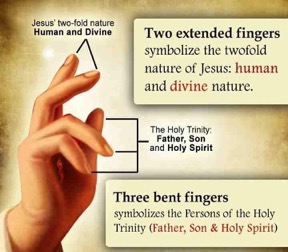Besting

"I could have had plenty good enough, but dug in my danged heels insisting upon The Best instead."
Nothing better encourages the human comedy than the concept of best. Whenever it enters a conversation, meaning flees to be replaced by abstraction. Ask someone to recommend The Best place for dinner and they might provide an opinion. Take that advice and you'll learn to question their perspective in the future. Many companies self-proclaim themselves to be The Best. Some rating agency, that is, a company in the business of absolutely discerning The Best, will publish their annual top ten best places to work list. If you'd ever worked inside any of those places, you'd deeply question the findings. Our search for best might be inbred, instinctive, but innate capacity does little to inoculate against the resulting obvious cluelessness. ©2018 by David A. Schmaltz - all rights reserved
Best exists as a comparator, not an absolute designation. My best work depends upon what I'm comparing it against, a measure of relative quality. A colleague of mine once counseled me to first compare any finished work with a blank sheet of paper—how does it compare to that?—to encourage generous judgements. When lunching at a small fishing town in South Dakota, I dare not judge the menu against some three star joint in Paree. A toasted tuna on rye might as well serve as best there, though it would hardly attract attention almost anywhere else. What you imagined or aspired to find might perhaps serve as the all-around worst comparator to choose, for imagination often sets impossibly high bars. It seems that the search for The Best creates more net dissatisfaction than anything else, for the world seems a fickle place, indifferent to personal preference and aspiration.
When a teacher asks me for The Best answer, I slip into a trans-derivational search destined to return with a null value, for my teacher has perhaps mistakenly asked me for an absolute response to an inescapably relative question. My most proper response might be, "It depends," which would likely earn me a one-way trip to the principal's office. I know how this game is played. I know the losing moves. My difficulty seems to center around the rather obvious fact that I'll lose whichever route I choose, unless I'm somehow able to read the teacher's mind, a truly horrifying prospect that I never showed any particular aptitude toward. The search for excellence continues in considerable earnest.
I've grown to think of Best as a form of Blessed, a fundamentally arbitrary designation intended to elevate one from another. Best Practices become Blessed Practices, better described as those practices someone blessed rather than as practices somehow inherently better. Since Best serves as a relative value, it cannot serve across contexts. Shift the context and perhaps lose the essential elevating relation. Likewise, that restaurant recommendation. When I ask after the best place for supper, I'm seeking the respondent's blessing, for who are they to determine the relative placement of restaurant compared to all other possibilities? The search for best distills into a search for nothingness, I suspect, a search for some absolution in a fundamentally relational world.
Best serves as a hot word for me. It highlights the presence of a specific sort of cluelessness, the kind that presumes absolutes in a relative world. The invitation to identify absolutes holds the power to transform even the most otherwise glowering skeptic into an over-enthusiastic golden retriever whose purpose in life lies in fulfilling his master's bidding. Bests invoke a kind of master/slave relationship where nobody's likely to win anything but a booby prize. Later, if I'm lucky, I might awaken to witness the depth of my recent delusion. I could have had plenty good enough, but dug in my danged heels insisting upon The Best instead.


